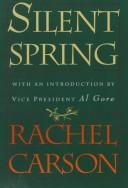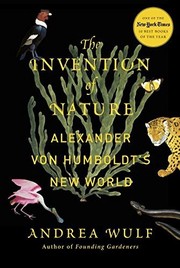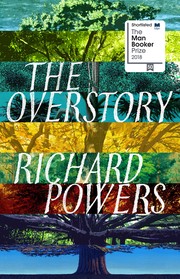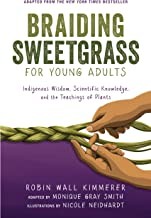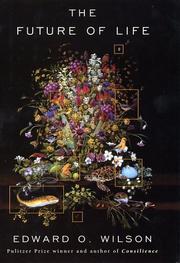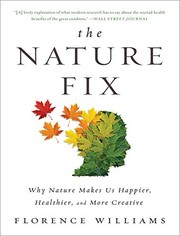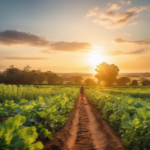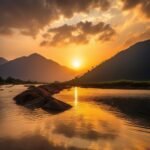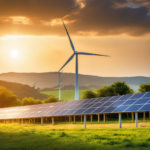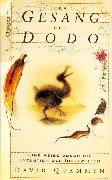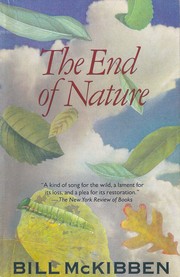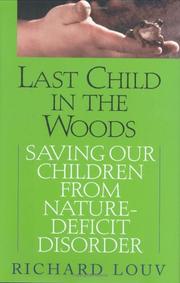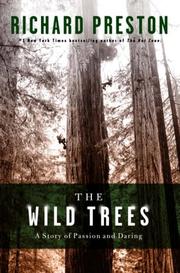Are you passionate about protecting our planet and its precious resources? Whether you’re a seasoned environmentalist or just beginning to explore the world of conservation, there’s a book on conservation out there for you. In this article, we’ve curated a list of the 20 best conservation books that will inspire, educate, and empower you to make a positive impact on the world around you. From thought-provoking essays to practical guides for sustainable living, these books cover a wide range of topics related to conservation. Get ready to dive into these captivating reads and deepen your understanding of the importance of preserving our natural world.
Contents
- 1 20 Best Conservation Books
- 2 The Sixth Extinction: An Unnatural History
- 3 Silent Spring
- 4 The Hidden Life of Trees: What They Feel, How They Communicate
- 5 The Invention of Nature: Alexander von Humboldt’s New World
- 6 The Overstory
- 7 Braiding Sweetgrass: Indigenous Wisdom, Scientific Knowledge, and the Teachings of Plants
- 8 The Future of Life
- 9 The Nature Fix: Why Nature Makes Us Happier, Healthier, and More Creative
- 10 The Uninhabitable Earth: Life After Warming
- 11 The Soul of an Octopus: A Surprising Exploration into the Wonder of Consciousness
- 12 The Water Will Come: Rising Seas, Sinking Cities, and the Remaking of the Civilized World
- 13 The Song of the Dodo: Island Biogeography in an Age of Extinctions
- 14 The Sixth Extinction: Patterns of Life and the Future of Humankind
- 15 The Great Animal Orchestra: Finding the Origins of Music in the World’s Wild Places
- 16 The World Without Us
- 17 The Once and Future World: Nature As It Was, As It Is, As It Could Be
- 18 The End of Nature
- 19 Last Child in the Woods: Saving Our Children from Nature-Deficit Disorder
- 20 A Sand County Almanac
- 21 The Wild Trees: A Story of Passion and Daring
- 22 Final Thoughts on Best Conservation Books
- 23
20 Best Conservation Books
The Sixth Extinction: An Unnatural History
by Elizabeth Kolbert
The Sixth Extinction: An Unnatural History by Elizabeth Kolbert is a riveting book about conservation that delves into the unprecedented loss of biodiversity on our planet. Kolbert skillfully weaves together scientific research, field reports, and personal anecdotes to paint a vivid picture of the ongoing mass extinction event caused by human activities.
Through a series of compelling narratives, Kolbert takes readers on a journey across the globe to witness the impacts of habitat destruction, climate change, and invasive species on vulnerable species. She explores the interconnectedness of ecosystems and the delicate balance that has been disrupted by human intervention. Ultimately, The Sixth Extinction serves as a stark warning about the irreversible consequences of our actions and the urgent need for conservation efforts.
This conservation book is a thought-provoking and eye-opening exploration of the fragility of life on Earth, and it challenges readers to confront the ethical and moral implications of our role in the ongoing extinction crisis.
Silent Spring
by Rachel Carson
Silent Spring, written by Rachel Carson, is a groundbreaking book on conservation that sparked a global environmental movement. Published in 1962, this influential book raised awareness about the harmful effects of pesticides, particularly DDT, on the environment and human health. Carson’s compelling and well-researched writing shed light on the widespread use of pesticides and their devastating impact on wildlife, leading to the decline of bird populations and the contamination of water and soil.
Carson’s powerful prose and meticulous research effectively conveyed the urgent need for environmental conservation and inspired readers to take action to protect the natural world. Silent Spring is widely regarded as a seminal work in the conservation movement and a catalyst for the establishment of environmental protection agencies and legislation. Through her eloquent and persuasive storytelling, Carson left an indelible mark on the environmental consciousness of the world, making Silent Spring an essential read for anyone interested in the preservation of the planet.
The Hidden Life of Trees: What They Feel, How They Communicate
by Peter Wohlleben
The Hidden Life of Trees: What They Feel, How They Communicate by Peter Wohlleben is a fascinating exploration of the intricate world of trees and forests. Wohlleben, a renowned forester, shares his profound insights into the lives of trees, revealing their astonishing abilities to communicate, cooperate, and even feel emotions. This eye-opening book delves into the complex network of roots, fungi, and microbes that connect trees, allowing them to share nutrients, information, and even support each other in times of need.
Through captivating storytelling and scientific research, Wohlleben provides a new perspective on the natural world, showing us the remarkable intelligence and resilience of trees. This book is not just a book on conservation, but a compelling call to action to appreciate and protect these vital organisms that sustain life on our planet. Whether you’re a nature enthusiast or simply curious about the hidden wonders of the forest, The Hidden Life of Trees is a must-read conservation book that will forever change the way you see the world around you.
The Invention of Nature: Alexander von Humboldt’s New World
by Andrea Wulf
The Invention of Nature: Alexander von Humboldt’s New World by Andrea Wulf is a captivating biography that chronicles the life and adventures of the visionary naturalist Alexander von Humboldt. Wulf’s vivid storytelling takes readers on a journey through Humboldt’s groundbreaking exploration of the natural world, from the Amazon rainforest to the Andes mountains. The book seamlessly weaves together Humboldt’s personal experiences and scientific discoveries, shedding light on his influential role in shaping our modern understanding of the environment.
This conservation book not only celebrates Humboldt’s pioneering spirit but also highlights his enduring impact on the fields of ecology, environmentalism, and climate science. Wulf skillfully captures Humboldt’s passion for nature and his tireless efforts to promote the interconnectedness of all living things, making this biography a must-read for anyone interested in the history of conservation and environmental activism. The Invention of Nature is a compelling tribute to a man whose ideas and legacy continue to inspire conservationists and nature lovers around the world.
The Overstory
by Richard Powers
The Overstory by Richard Powers is a captivating novel that weaves together the lives of nine individuals whose paths converge as they become deeply connected to trees. This epic story spans generations and continents, exploring the profound impact that trees have on the world and the people who fight to protect them. Through exquisite prose and intricate storytelling, Powers delves into the complex relationships between humanity and nature, shedding light on the urgent need for environmental preservation. The book serves as a powerful reminder of the interconnectedness of all living beings and the essential role that trees play in sustaining life on Earth. With its lyrical exploration of the natural world and thought-provoking insights, The Overstory is a mesmerizing and impactful read for anyone interested in the beauty and importance of the natural world. This book is a stunning ode to the natural world and a must-read for anyone interested in the importance of environmental preservation.
Braiding Sweetgrass: Indigenous Wisdom, Scientific Knowledge, and the Teachings of Plants
by Robin Wall Kimmerer
Braiding Sweetgrass by Robin Wall Kimmerer is a captivating exploration of the intersection between indigenous wisdom, scientific knowledge, and the teachings of plants. Through a series of beautifully woven essays, Kimmerer shares her deep understanding of the natural world and her Potawatomi heritage, offering valuable insights into the reciprocal relationship between humans and the earth.
This book on conservation is a celebration of the land and an urgent call to action, as Kimmerer advocates for a more sustainable and harmonious approach to our environment. She skillfully blends personal anecdotes, traditional stories, and ecological teachings to illustrate the interconnectedness of all living beings and the importance of nurturing and protecting the earth.
Braiding Sweetgrass is a thought-provoking and enlightening read that inspires readers to reconsider their relationship with nature and encourages a deeper appreciation for the wisdom of indigenous cultures. Kimmerer’s lyrical prose and profound reflections make this book about conservation an essential addition to any environmentalist’s library.
The Future of Life
by Edward O. Wilson
The Future of Life by Edward O. Wilson is a groundbreaking book on conservation that explores the urgent need to protect the Earth’s biodiversity. Wilson, a renowned biologist, presents a compelling argument for the preservation of our planet’s diverse ecosystems and the species that inhabit them. Through vivid storytelling and scientific insights, he highlights the devastating impact of human activities such as deforestation, pollution, and climate change on the natural world.
Wilson’s eloquent prose and passion for the environment make this book about conservation a must-read for anyone concerned about the future of our planet. He not only outlines the threats facing biodiversity but also offers hope and practical solutions for safeguarding the Earth’s precious resources. The Future of Life serves as a wake-up call, inspiring readers to take action and become advocates for environmental preservation. This conservation book is an essential resource for anyone interested in understanding and protecting the delicate balance of life on our planet.
The Nature Fix: Why Nature Makes Us Happier, Healthier, and More Creative
by Florence Williams
The Nature Fix by Florence Williams is a captivating book about the profound impact that nature has on our well-being. Through engaging storytelling and scientific research, Williams explores the many ways in which spending time in nature can make us happier, healthier, and more creative. This book is a fascinating journey into the science of nature’s healing powers, and it offers valuable insights into the importance of incorporating nature into our daily lives. Whether it’s exploring the restorative effects of forest bathing in Japan or delving into the cognitive benefits of spending time in natural settings, The Nature Fix presents a compelling case for the vital role that nature plays in our physical and mental health.
The Uninhabitable Earth: Life After Warming
by David Wallace-Wells
The Uninhabitable Earth: Life After Warming by David Wallace-Wells is a groundbreaking book about the devastating effects of climate change on our planet. This poignant and eye-opening exploration of the future of our world paints a stark picture of the potential consequences of inaction on climate change. Wallace-Wells delves into the alarming realities of rising temperatures, extreme weather events, food and water scarcity, and the displacement of millions of people. The book serves as a wake-up call, urging readers to confront the harsh truth about the future of our planet and the urgent need for conservation efforts.
This compelling and thought-provoking book on conservation is a call to action for individuals, communities, and governments to take meaningful steps to mitigate the impact of climate change and protect the Earth for future generations. The Uninhabitable Earth is a must-read for anyone concerned about the environment and the future of our planet.
The Soul of an Octopus: A Surprising Exploration into the Wonder of Consciousness
by Sy Montgomery
The Soul of an Octopus by Sy Montgomery is a captivating exploration into the incredible world of these enigmatic creatures. Montgomery takes readers on a mesmerizing journey into the depths of the ocean as she delves into the intriguing consciousness of the octopus. Through her vivid storytelling, readers are immersed in the intimate and surprising relationships that Montgomery forms with these otherworldly beings. The book is a testament to the astonishing intelligence and emotional depth of octopuses, challenging our preconceived notions about the nature of consciousness. With its lyrical prose and deep sense of wonder, The Soul of an Octopus offers a profound meditation on the interconnectedness of all living beings and the mysteries of the natural world. This book is a must-read for anyone interested in marine life, animal behavior, and the beauty of the underwater world. The Soul of an Octopus is a conservation book that will inspire readers to appreciate and protect the wondrous creatures that inhabit our oceans.
The Water Will Come: Rising Seas, Sinking Cities, and the Remaking of the Civilized World
by Jeff Goodell
The Water Will Come: Rising Seas, Sinking Cities, and the Remaking of the Civilized World by Jeff Goodell is a captivating exploration of the imminent threat of rising sea levels and its impact on coastal cities around the world. Goodell takes readers on a journey to various locations, from Miami to Venice, to witness firsthand the effects of climate change and the challenges faced by communities as they grapple with the encroaching waters.
This conservation book delves into the complex intersection of politics, economics, and environmental science, offering a comprehensive understanding of the urgent need for action to mitigate the effects of sea level rise. Goodell’s compelling narrative is filled with personal stories, scientific insights, and thought-provoking analysis, making it a must-read for anyone concerned about the future of our planet.
The Water Will Come presents a sobering yet hopeful message, urging readers to confront the reality of climate change and take meaningful steps towards adaptation and conservation for the sake of our civilization and the natural world.
The Song of the Dodo: Island Biogeography in an Age of Extinctions
by David Quammen
The Song of the Dodo is a captivating book about conservation that delves into the fascinating world of island biogeography and the impact of human activity on the delicate balance of ecosystems. Author David Quammen takes readers on a journey through the science of biogeography, exploring the evolution and extinction of species on isolated islands. Through compelling storytelling and in-depth research, Quammen sheds light on the interconnectedness of all living things and the crucial role of conservation in preserving biodiversity.
With vivid descriptions and thought-provoking insights, The Song of the Dodo offers a powerful exploration of the challenges facing our planet in an age of extinctions. It is a must-read for anyone interested in the natural world, environmental science, and the urgent need for book on conservation efforts. Quammen’s eloquent prose and expert knowledge make this conservation book a captivating and essential addition to the literature on biodiversity and the preservation of species.
The Sixth Extinction: Patterns of Life and the Future of Humankind
by Richard E. Leakey and Roger Lewin
The Sixth Extinction: Patterns of Life and the Future of Humankind, co-authored by Richard E. Leakey and Roger Lewin, is a thought-provoking book on conservation that delves into the alarming rate of extinction of species on our planet. The authors explore the patterns of life and the potential future of humankind in the face of this crisis. Leakey and Lewin provide a comprehensive overview of the historical extinctions that have occurred on Earth and the current factors contributing to the sixth mass extinction event. They discuss the impact of human activities such as habitat destruction, climate change, and pollution on biodiversity, and emphasize the urgent need for conservation efforts to preserve the planet’s ecosystems.
The book presents a compelling argument for the importance of understanding and addressing the loss of biodiversity, highlighting the interconnectedness of all living organisms and the potential consequences for humanity. The Sixth Extinction is a must-read for anyone interested in the environment, ecology, and the future of our planet, offering valuable insights into the challenges and opportunities for conservation in the modern world.
The Great Animal Orchestra: Finding the Origins of Music in the World’s Wild Places
by Bernie Krause
The Great Animal Orchestra: Finding the Origins of Music in the World’s Wild Places by Bernie Krause is a captivating exploration of the intersection between nature and music. In this extraordinary book on conservation, Krause, a renowned musician and naturalist, takes readers on a sonic journey through some of the world’s most remote and untouched natural habitats. Through his pioneering work in bioacoustics, Krause reveals the intricate and harmonious soundscape of the natural world, where the calls, songs, and sounds of animals create a symphony unlike any other.
With a keen focus on the importance of preserving these natural soundscapes, The Great Animal Orchestra is not just a conservation book, but a heartfelt plea to protect the biodiversity and habitats that produce these wondrous musical compositions. Krause’s writing is both informative and deeply moving, offering readers a profound appreciation for the intricate web of life that exists in our planet’s wild places. This book is a must-read for anyone who is passionate about nature, music, and the urgent need to protect our natural world.
The World Without Us
by Alan Weisman
The World Without Us by Alan Weisman is a captivating exploration of what would happen to the planet if humans suddenly disappeared. This thought-provoking book delves into the idea of a world reclaimed by nature, free from human influence. Weisman takes readers on a journey through time, envisioning how the environment would evolve in the absence of human activity. From cities slowly crumbling to the resurgence of wildlife in urban areas, he paints a vivid and sometimes haunting picture of a planet reclaiming its natural state.
This book on conservation is not just a speculative exercise, but a compelling reminder of the impact humans have on the environment. Through Weisman’s meticulous research and engaging storytelling, readers gain a new appreciation for the delicate balance between human civilization and the natural world. The World Without Us is a must-read for anyone interested in the environment, offering valuable insights into the importance of stewardship and sustainability.
The Once and Future World: Nature As It Was, As It Is, As It Could Be
by J.B. MacKinnon
The Once and Future World by J.B. MacKinnon is a captivating exploration of the natural world and the impact of human activity on it. This thought-provoking book takes readers on a journey through time, comparing the biodiversity and abundance of nature in the past to the present day. MacKinnon delves into the concept of rewilding, offering a vision of what the future of our planet could look like if we prioritize restoration and conservation.
With vivid storytelling and compelling research, MacKinnon paints a picture of the once-thriving ecosystems that have been drastically altered by human intervention. He challenges readers to consider the potential for rewilding and the restoration of natural landscapes, offering hope for the future of our planet. The Once and Future World is a must-read for anyone interested in the environment, conservation, and the future of our planet. This book about conservation is sure to inspire readers to reconsider their relationship with the natural world and the potential for positive change.
The End of Nature
by Bill McKibben
The End of Nature by Bill McKibben is a groundbreaking book on conservation that delves into the devastating impact of human activity on the natural world. McKibben argues that the era of human dominance has caused irreversible damage to the environment, leading to the ‘end of nature’ as we know it. He explores how climate change, deforestation, and pollution have disrupted the delicate balance of the Earth’s ecosystems, forever altering the planet. Through powerful prose and compelling evidence, McKibben urges readers to confront the reality of our changing world and take action to preserve what remains of our natural heritage.
This book about conservation is a call to arms, challenging us to reconsider our relationship with the environment and inspiring us to become stewards of the Earth. McKibben’s poignant reflections on the fragility of the natural world serve as a wake-up call, reminding us of the urgent need to protect and restore the planet for future generations. The End of Nature is a thought-provoking and essential conservation book that compels us to rethink our place in the world and the impact of our actions on the environment.
Last Child in the Woods: Saving Our Children from Nature-Deficit Disorder
by Richard Louv
Last Child in the Woods: Saving Our Children from Nature-Deficit Disorder by Richard Louv is a compelling book about the importance of reconnecting children with nature. Louv argues that the rise of technology and urbanization has led to a growing disconnection between children and the natural world, resulting in what he terms “nature-deficit disorder.” Through engaging storytelling and persuasive evidence, Louv explores the detrimental effects of this disconnection on children’s physical and mental well-being.
The book advocates for the conservation of natural spaces and the promotion of outdoor activities to help children develop a deeper appreciation for the environment. Louv also emphasizes the positive impact that nature has on children’s creativity, problem-solving skills, and overall happiness. With a blend of scientific research and personal anecdotes, Last Child in the Woods encourages parents, educators, and policymakers to prioritize nature experiences for children in order to foster a healthier and more environmentally conscious generation.
A Sand County Almanac
by Aldo Leopold
A Sand County Almanac is a seminal book on conservation written by Aldo Leopold, a pioneer in the field of environmental ethics. This collection of essays offers an insightful and poetic exploration of the natural world, with a focus on the author’s experiences on his Wisconsin farm. Leopold’s reflections on the land, wildlife, and the interconnectedness of ecosystems are not only thought-provoking but also deeply moving.
Through his eloquent prose, Leopold advocates for a shift in humanity’s relationship with the natural world, urging readers to embrace a land ethic that values the health and integrity of the entire biotic community. A Sand County Almanac not only serves as a call to action for environmental stewardship but also as a timeless tribute to the beauty and complexity of the natural world. This conservation book continues to inspire readers to reevaluate their role in the environment and to cultivate a deeper appreciation for the land and its inhabitants.
The Wild Trees: A Story of Passion and Daring
by Richard Preston
The Wild Trees: A Story of Passion and Daring by Richard Preston is a mesmerizing exploration of the ancient and breathtaking world of the redwood forests. This non-fiction book chronicles the journeys of a group of passionate and daring individuals who dedicate their lives to studying and conserving the towering giants of the California coast.
Richard Preston takes readers on a thrilling adventure as he delves into the fascinating lives of the scientists and adventurers who climb and study the world’s tallest trees. With vivid descriptions and captivating storytelling, he brings to life the hidden world of the redwood canopy, introducing readers to a cast of characters who push the boundaries of exploration and conservation.
Through The Wild Trees, readers will gain a newfound appreciation for the awe-inspiring beauty and importance of these ancient giants. This book on conservation is a testament to the power of human curiosity and the relentless pursuit of knowledge in the face of daunting challenges.
Final Thoughts on Best Conservation Books
In conclusion, these 20 best books about Conservation offer a wealth of knowledge and inspiration for anyone interested in preserving our planet’s natural resources. Whether you’re an avid environmentalist or simply looking to learn more about conservation efforts, these books provide valuable insights and practical solutions for addressing the pressing issues facing our planet today. From in-depth analyses of ecosystems to compelling narratives of conservation pioneers, these books cover a wide range of topics that will enlighten and empower readers to take action. Dive into these books and discover the beauty of our natural world, as well as the urgent need to protect it for future generations.
Which book about Conservation is best?
The best book on Conservation can vary with personal preference, but three widely recommended titles are:
- The Sixth Extinction: An Unnatural History by Elizabeth Kolbert,
- Silent Spring by Rachel Carson,
- The Hidden Life of Trees: What They Feel, How They Communicate by Peter Wohlleben.
Each offers valuable insights and could be a great starting point.
What are the best books to learn about Conservation?
For those looking to learn about Conservation, there is a wealth of literature that can provide a comprehensive understanding of the subject. Some of the most highly recommended books include:
- The Sixth Extinction: An Unnatural History by Elizabeth Kolbert,
- Silent Spring by Rachel Carson,
- The Hidden Life of Trees: What They Feel, How They Communicate by Peter Wohlleben,
- The Invention of Nature: Alexander von Humboldt’s New World by Andrea Wulf,
- The Overstory by Richard Powers,
- Braiding Sweetgrass: Indigenous Wisdom, Scientific Knowledge, and the Teachings of Plants by Robin Wall Kimmerer,
- The Future of Life by Edward O. Wilson,
- The Nature Fix: Why Nature Makes Us Happier, Healthier, and More Creative by Florence Williams,
- The Uninhabitable Earth: Life After Warming by David Wallace-Wells,
- The Soul of an Octopus: A Surprising Exploration into the Wonder of Consciousness by Sy Montgomery
These books offer a range of perspectives on Conservation, covering various aspects and approaches to the subject.
What are the best books about Conservation?
The best books about Conservation are:
- The Sixth Extinction: An Unnatural History by Elizabeth Kolbert,
- Silent Spring by Rachel Carson,
- The Water Will Come: Rising Seas, Sinking Cities, and the Remaking of the Civilized World by Jeff Goodell,
- The Song of the Dodo: Island Biogeography in an Age of Extinctions by David Quammen,
- The Nature Fix: Why Nature Makes Us Happier, Healthier, and More Creative by Florence Williams,
- Braiding Sweetgrass: Indigenous Wisdom, Scientific Knowledge, and the Teachings of Plants by Robin Wall Kimmerer.
Each offers unique insights into the subject. While these books about Conservation are highly regarded, it’s important to note that any list of ‘best’ books is subjective and reflects a range of opinions.
What are the best Conservation books of all time?
Choosing the best Conservation books of all time can vary depending on who you ask, but five titles that are often celebrated include
- The Sixth Extinction: An Unnatural History by Elizabeth Kolbert,
- Silent Spring by Rachel Carson,
- The Overstory by Richard Powers,
- The Nature Fix: Why Nature Makes Us Happier, Healthier, and More Creative by Florence Williams,
- and The Water Will Come: Rising Seas, Sinking Cities, and the Remaking of the Civilized World by Jeff Goodell.
Each of these books has made a significant impact in the field of Conservation and continues to be influential today.


